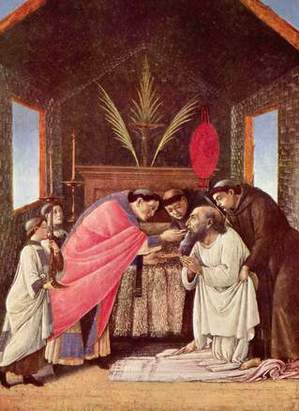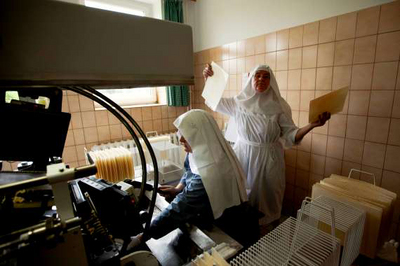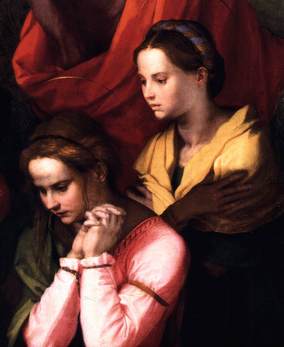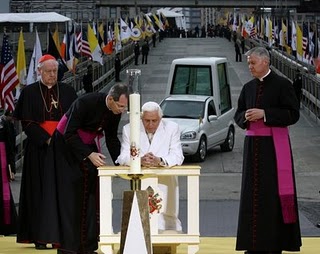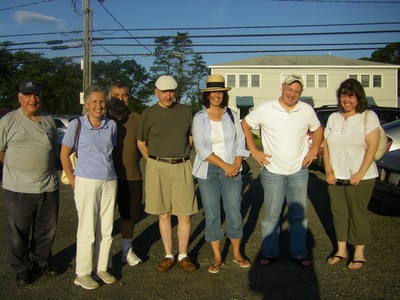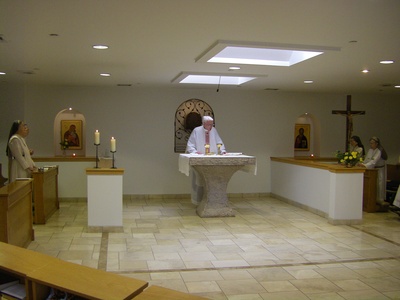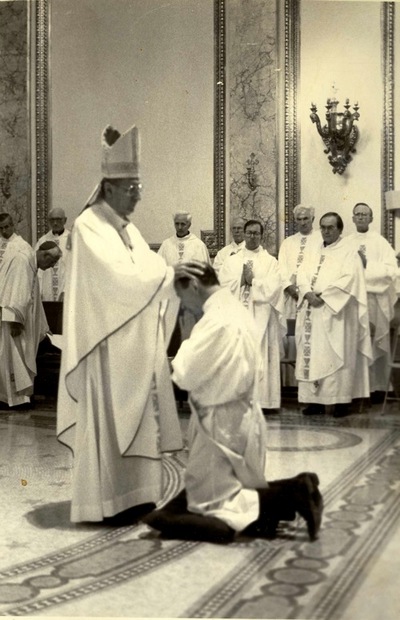September 2011 Archives
 No better day than today to recall the work of the archangels: Saints Michael, Gabriel and Raphael.
No better day than today to recall the work of the archangels: Saints Michael, Gabriel and Raphael.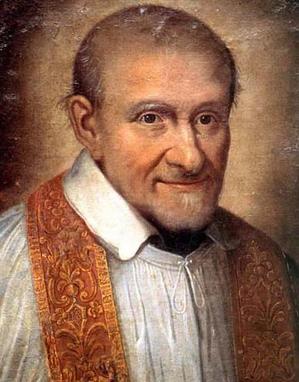
The question I am asking myself: is it possible to follow this man? Alternately, Can I even think that it is possible to be a man like Padre Pio, and seek after God without reservation? What Padre Pio has left us is a clear model of holiness and a path to walk. Holiness here is not meant to be an artificial , showy display of piety (beating the breast, hours of Adoration of Eucharistic adoration, days of fasting, no bathing, etc) but it is a way of life where we shed everything that is not ourselves, living in the manner that is coresponds to the way God the Father has educated us through His Son, Jesus (read the NT). Padre Pio's ministerial life as a priest and as a professed Franciscan Capuchin focussed on the sanctification of souls. No greater work needed his attention and energy. The path given us to walk by Padre Pio is one that leads us back to God hearing the words of Jesus: I love you, I have mercy on you no matter what. Three tools to use on this path: prayer, confession and charity. Beauty and joy will shine through our conversation with God and by our love. If you really want to know more about the path Pio gives us, read what the Pope spoke in 2009 when he made a pilgrimage to the relics of Saint Pio:
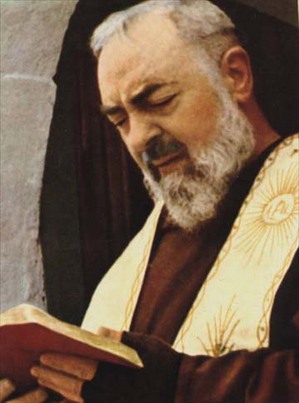
Some saints have lived intensely and personally this experience of Jesus. Padre Pio of Pietrelcina is one of them. A simple man of humble origins, "seized by Christ" (Phil. 3:12) -- as the Apostle Paul writes of himself -- to make of him an instrument chosen by the perennial power of his cross: power of love for souls, of forgiveness and of reconciliation, of spiritual paternity, of effective solidarity with those who suffer. The stigmata, which marked his body, united him closely to the Crucified and Risen One. A true follower of St. Francis of Assisi, he made his own, like the Poverello, the experience of the Apostle Paul which he describes in his letters: "I have been crucified with Christ and I no longer live, but Christ lives in me" (Gal 2:20), or: "in us death is at work, but in you life" (2 Cor 5, 12). This does not mean alienation, loss of personality: God never annuls that which is human, but he transforms it with his Spirit and he ordains it to the service of his plan of salvation. Padre Pio kept his natural gifts, and even his own temperament, but he offered everything to God, who has been able to freely use them to extend the work of Christ: to proclaim the Gospel, forgive sins and heal the sick in body and spirit.
As it was for Jesus, the real struggle, the radical combat Padre Pio had to sustain, was not against earthly enemies, but against the spirit of evil (cf. Ephesians 6, 12). The biggest "storms" that threatened him were the assaults of the devil, against which he defended himself with "the armor of God" with "the shield of faith" and "the sword of the Spirit, which is the word of God" (Ephesians 6:11,16,17). Remaining united to Jesus, he always kept in mind the depths of the human drama, and because of this he offered himself and offered his many sufferings, and he knew how to spend himself in the care and relief of the sick, a privileged sign of God's mercy, of his kingdom which is coming, indeed, which is already in the world, of the victory of love and life over sin and death. Guide souls and relieve suffering: thus we can sum up the mission of St. Pio of Pietrelcina, as the servant of God, Pope Paul VI said about him: "He was a man of prayer and suffering" (To the Capuchin Chapter Fathers, 20 February 1971).
Pope Benedict XVI
Homily during the 2009 visit to the Shrine of Saint Pio
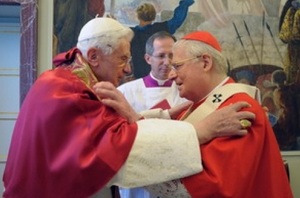 The Pope gave the pallium to the new archbishop of Milan, Angelo Cardinal Scola earlier today. The pallium is a symbol of communion between the wearer (normally metropolitan archbishops) the pope. Hence, it is more ecclesial in nature than liturgical, though the pallium is rarely worn outside of the celebration of the Mass. He can give it whenever and to whomever he wants. Custom of recent years is that the pope gives the pallium to those metropolitans who request it on the feast of Saints Peter and Paul. Nevertheless, this is a novel event that indicates a personal relationship between the cardinal and the pope.
The Pope gave the pallium to the new archbishop of Milan, Angelo Cardinal Scola earlier today. The pallium is a symbol of communion between the wearer (normally metropolitan archbishops) the pope. Hence, it is more ecclesial in nature than liturgical, though the pallium is rarely worn outside of the celebration of the Mass. He can give it whenever and to whomever he wants. Custom of recent years is that the pope gives the pallium to those metropolitans who request it on the feast of Saints Peter and Paul. Nevertheless, this is a novel event that indicates a personal relationship between the cardinal and the pope.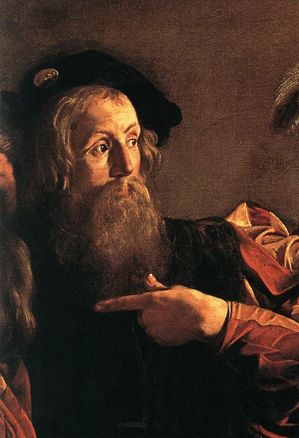
Matthew was an accomplished scribe, well versed in the law of God. With all his heart he studied the law of the Lord, with whose help he lived as he taught. The gospel of the glory of God is Matthew's. With all his heart he studied the law of the Lord, with whose help he lived as he taught. (Responsory, Office of Readings)
The first reading from the New Testament for the feast of the Apostle Saint Matthew is stunningly beautiful Saint Paul's letter to the Ephesians is a truly a love letter to the Church and this selection fittingly captures what it means to be an apostle of the Lord. Consider....
"I, the prisoner in the Lord, implore you to lead a life worthy of your vocation. Bear with one another charitably, in complete selflessness, gentleness and patience. Do all you can to preserve the unity of the Spirit by the peace that binds you together. There is one Body, one Spirit, just as you were all called into one and the same hope when you were called. There is one Lord, one faith, one baptism, and one God who is Father of all, over all, through all and within all.
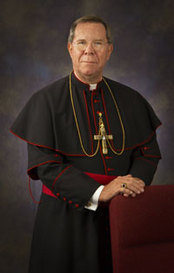 The Most Reverend Daniel Mark Buechlein, 73, has had his request for an early retirement from the Office of Archbishop of Indianapolis accepted by His Holiness, Pope Benedict XVI due increasing concerns of health. In recent months has been dealing with the effects of a mild stroke complicated by other issues like cancer.
The Most Reverend Daniel Mark Buechlein, 73, has had his request for an early retirement from the Office of Archbishop of Indianapolis accepted by His Holiness, Pope Benedict XVI due increasing concerns of health. In recent months has been dealing with the effects of a mild stroke complicated by other issues like cancer.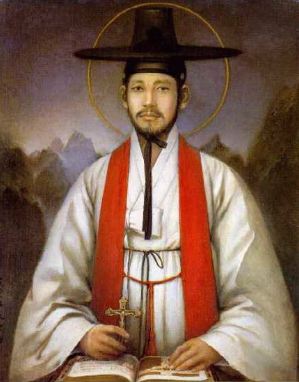 Today is the feast of the 19th century Saints Andrew Kim and Paul Hasang and their 103 companions. Kim is the first Korean born Catholic priest! He also followed his father as a martyr for the faith. Andrew was beheaded after being tortured in 1846. These saints were raised to the altars by Pope John Paul II in 1984.
Today is the feast of the 19th century Saints Andrew Kim and Paul Hasang and their 103 companions. Kim is the first Korean born Catholic priest! He also followed his father as a martyr for the faith. Andrew was beheaded after being tortured in 1846. These saints were raised to the altars by Pope John Paul II in 1984.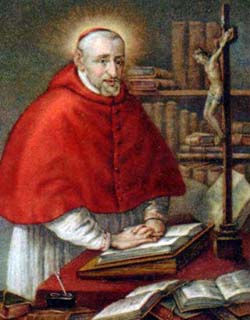
Today's saint is special to me for many personal reasons, one of which is the fact that he gave himself to the Lord for his total and unreserved use. One can claim to like Bellarmine for his intellect, or the way he worked with controversial Catholic preachers and theologians and Protestants, or with Galileo, or his service to several popes, but what about his capacity to love the Lord and his neighbor, and what about his ability to know his limitations and his gifts, or his capacity to live the Beatitudes?
Each time I am in Rome I make a path to St Ignatius's Church where Bellarmine is buried in the third chapel on the right as you face the main altar, near to his dear friend, Saint Aloyius Gonzaga, to pray for several intentions, among them are: theologians, the pope, the Jesuits, +Avery Robert Dulles and of course, myself.
The Roman Martyrology (2005) has this entry for Robert Bellarmine (1542-1621):
The feast of St. Robert Bellarmine, from the Society of Jesus, Doctor of the Church and bishop, who was outstanding at arguing the theological controversies of his day. He resigned his red hat, then gave himself wholeheartedly both to pastoral ministry in Capua, with great success, and took up very many challenges in defense of the doctrine of the faith at the Holy See in Rome.
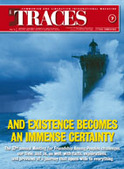
Great news with you: Traces is now available for iPad users and users of Apple's latest OS, Lion. All that is necessary is to go to the App Store and enter "Traces" and you will find it.
There are many, pretty obvious, advantages to this new form, including receiving Traces as soon as it's published, paying less for a subscription and the ability to easily tell friends who have an iPad.
I hope all of you Apple and iPad users will sign up, immediately, and tell your friends!
 La Civiltà Cattolica, THE prestigious journal of opinion in Italy, and perhaps in very many ecclesial circles, has new leadership in Jesuit Father Antonio Spadaro. La Civiltà Cattolica has been at the service of the Church 162 years.
La Civiltà Cattolica, THE prestigious journal of opinion in Italy, and perhaps in very many ecclesial circles, has new leadership in Jesuit Father Antonio Spadaro. La Civiltà Cattolica has been at the service of the Church 162 years.
Why the Sorrowful Mother? Why do Catholics honor Mary, the Mother of God with the title of "Sorrows"? Is it an honor to be called such? Some good questions, I think. Mark Miravalle answers the question this way:
We could just as well ask St. Paul why he instructs all Christians to "make up what is lacking in the sufferings of Christ for the sake of his body, which is the Church" (Colossians 1:24).
We Christians, too, will suffer and do suffer. Our suffering has the capacity to release a portion of the infinite graces merited by Jesus at Calvary, what theologians call "objective redemption." But as these redemptive graces of Jesus must be personally received by the human heart, every Christian has a role in this mysterious release and reception of grace which theologians call "subjective redemption."
Mary alone, as the "New Eve" with Jesus the "New Adam," participates in both objective and subjective redemption: both in the historic acquisition of redemptive grace and in the providential release of redemptive grace. Blessed John Paul would teach of his mother and ours that Mary's intensity of suffering at Calvary was a "contribution to the redemption of all" (Salvifici Doloris, 25).
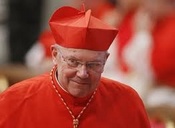 The Vatican office organizing the "talks" between the Holy See and the Society of Saint Pius X issued a press release going over some of the areas of concern between the two. William Cardinal Levada, Prefect of the Congregation for the Doctrine of the Faith met today for two hours with Bishop Bernard Fellay. Among the issues presented and discussed was the set of principles called the "Doctrinal Preamble" which is outlining the ecclesial solution of bringing the SSPX into full communion with the Catholic Church. Some are thinking that the pastoral solution might be akin to that of a personal prelature like what the Opus Dei is in the Church.
The Vatican office organizing the "talks" between the Holy See and the Society of Saint Pius X issued a press release going over some of the areas of concern between the two. William Cardinal Levada, Prefect of the Congregation for the Doctrine of the Faith met today for two hours with Bishop Bernard Fellay. Among the issues presented and discussed was the set of principles called the "Doctrinal Preamble" which is outlining the ecclesial solution of bringing the SSPX into full communion with the Catholic Church. Some are thinking that the pastoral solution might be akin to that of a personal prelature like what the Opus Dei is in the Church.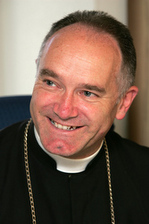
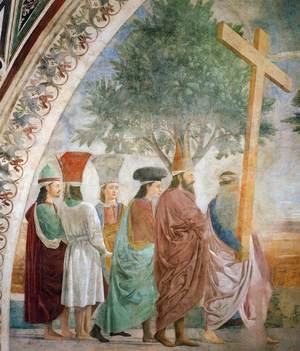
Consummatum est. It is completed -- it has come to a full end. The mystery of God's love toward us is accomplished. The price is paid, and we are redeemed. The Eternal Father determined not to pardon us without a price, in order to show us especial favor. He condescended to make us valuable to Him. What we buy we put a value on. He might have saved us without a price --by the mere fiat of His will. But to show His love for us He took a price, which, if there was to be a price set upon us at all, if there was any ransom at all to be taken for the guilt of our sins, could be nothing short of the death of His Son in our nature. O my God and Father, Thou hast valued us so much as to pay the highest of all possible prices for our sinful souls-- and shall we not love and choose Thee above all things as the one necessary and one only good?
Blessed John Henry Newman
Meditation on the 12th Station
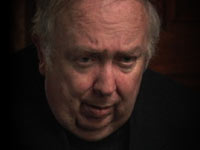 Monsignor Lorenzo Albacete was interviewed by PBS's Frontline on the 9/11 tragedy.
Monsignor Lorenzo Albacete was interviewed by PBS's Frontline on the 9/11 tragedy.Working with religious education of children and adults I see a bad trend: the over managed life. So much so that people are putting their social and personal activities above their religious duties and relationship with God. The Third Commandment is no longer holding sway; the Church's teaching on keeping Sunday for worship and family seeming is out the window. Of course, people strenuously rebut this accusation. Truth be told, you can't deny that there are activities competing with a proper Catholic observance of Sunday. Praying in Church --with a stable faith community-- is not merely an obligation (speaking of Sunday Mass as "an obligation" is a mediocre way of approaching the question of faith, relationship with God and Church observance).
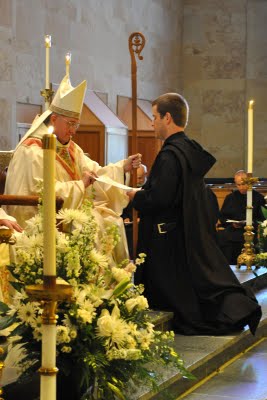
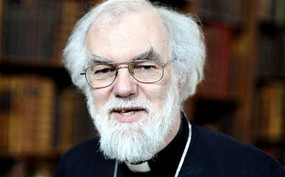 Lots of speculation floating around these days about the retirement of the Archbishop of Canterbury, Rowan Williams. If it happens, it's expected after the Diamond Jubliee of Her Majesty, the Queen. Jonathan Wynne-Jones of London's The Telegraph has an article, "Archbishop of Canterbury Dr Rowan Williams set to quite next year." Say it ain't so. I like Dr Williams, and I would be sad to see him leave the See of Canterbury. But may be if does, he can swim the Tiber, too.
Lots of speculation floating around these days about the retirement of the Archbishop of Canterbury, Rowan Williams. If it happens, it's expected after the Diamond Jubliee of Her Majesty, the Queen. Jonathan Wynne-Jones of London's The Telegraph has an article, "Archbishop of Canterbury Dr Rowan Williams set to quite next year." Say it ain't so. I like Dr Williams, and I would be sad to see him leave the See of Canterbury. But may be if does, he can swim the Tiber, too.
Here's the prayer of His Holiness, Pope Benedict XVI on visit to the Ground Zero memorial on 20 April 2008. It is the best prayer to the God of consolation that I know of. I offer it to you for your prayerful solidarity today.
To my Venerable Brother
The Most Reverend Timothy M. Dolan
President
United States Conference of Catholic Bishops
Grace to you and peace from God our Father and the Lord Jesus Christ!
On this day my thoughts turn to the somber events of September 11, 2001, when so many innocent lives were lost in the brutal assault on the twin towers of the World Trade Center and the further attacks in Washington D.C. and Pennsylvania. I join you in commending the thousands of victims to the infinite mercy of Almighty God and in asking our heavenly Father to continue to console those who mourn the loss of loved ones.
The tragedy of that day is compounded by the perpetrators' claim to be acting in God's name. Once again, it must be unequivocally stated that no circumstances can ever justify acts of terrorism. Every human life is precious in God's sight and no effort should be spared in the attempt to promote throughout the world a genuine respect for the inalienable rights and dignity of individuals and peoples everywhere.
The American people are to be commended for the courage and generosity that they showed in the rescue operations and for their resilience in moving forward with hope and confidence. It is my fervent prayer that a firm commitment to justice and a global culture of solidarity will help rid the world of the grievances that so often give rise to acts of violence and will create the conditions for greater peace and prosperity, offering a brighter and more secure future.
With these sentiments, I extend my most affectionate greetings to you, your brother Bishops and all those entrusted to your pastoral care, and I gladly impart my Apostolic Blessing as a pledge of peace and serenity in the Lord.
From the Vatican, September 11, 2011
BENEDICTUS PP. XVI
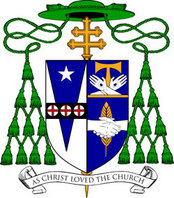
Yesterday's installation of Archbishop Charles J. Chaput as the new Archbishop of Philadelphia was beautiful on all avenues: music, word, gersture. One of many beautiful parts of his homily was on the ministry (vocation) of the bishop. For that part he quoted the great bishop and Doctor of the Church, Saint Augustine of Hippo. You may think I am cynical by saying this, but I wonder sometimes how often our bishops live up to their vocation as the Church has expected and how often they reflect on the words of a brother such as the eminent Augustine. Perhaps not often enough. AND that is likely the reason Archbishop Charles mention the vocation his homily.
What follows is a terrfic teaching on this vitally vigorous vocation of the Church.
Thanks be to God for the Archbishop!
St. Augustine of Hippo, speaking in the 4th century captured the role of the bishop in these words:
"Jerusalem had watchmen who stood guard . . . And this is what bishops do. Now, bishops are assigned this higher place" -- the bishop's chair in the basilica -"so that they themselves may oversee and, as it were, keep watch over the people. For they are called episkopos in Greek, which means 'overseer,' because the bishop oversees; because he looks down from [his chair] . . . And on account of this high place, a perilous accounting will have to be rendered [by the bishop] - unless we stand here with a heart such that we place ourselves beneath your feet in humility."
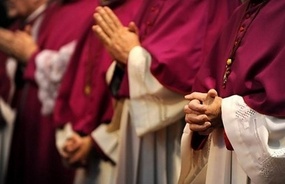
Another time, on the anniversary of his episcopal ordination, Augustine described the bishop's duties in the following way:
"To rebuke those who stir up strife, to comfort those of little courage, to take the part of the weak, to refute opponents, to be on guard against traps, to teach the ignorant, to shake the indolent awake, to discourage those who want to buy and sell, to put the presumptuous in their place, to modify the quarrelsome, to help the poor, to liberate the oppressed, to encourage the good, to suffer the evil and to love all men."
It's crucial for those of us who are bishops not simply to look like bishops but to truly be bishops. Otherwise, we're just empty husks -- the kind of men Augustine meant when he said,
"You say, 'He must be a bishop for he sits upon the cathedra.' True - and a scarecrow might also be called a watchman in the vineyard."
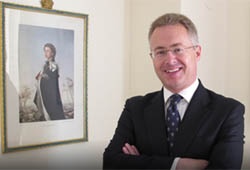
This morning Pope Benedict XVI received the new Ambassador of Great Britain to the Holy See, Nigel Marcus Baker in an audeince where the new ambassador presented his credentials to the Pope.
Ambassador Nigel Marcus Baker, 45, succeeds Francis Campbell who moved after a term of service to the Holy See to another post. The new ambassador has worked with his country's diplomatic service in Central Europe and in South America; recently he was in Bolivia. Baker has worked in the Private Office of Prince Charles and for two years lived and studied in Italy. He's married and has one son.
Today's address is basically diplo-speak, but there are a few points made by Benedict which are worth thinking about today. I am especially focussing on the Pope's mention of charity, values, relativism, ecomony, and education. In part, the Pope spoke of the UK stituation of government but what he said has implications in the US:
Last Sunday's Mass readings centered our attention on fraternal charity, fraternal correction. We have to heal the person who causes harm because he or she needs the healing more. The Rule of St Benedict and Pope Benedict had something to say about it. This coming Sunday's reading continues the theme of forgiveness. The Church in her wisdom keeps on reminding us of the facts that make up the Christian journey and how to live within these "facts" so that we thrive.
Basilian Father Thomas Rosica's reflections on this coming Sunday's readings on forgiveness are appropos.
What does it mean, "to forgive"? First of all forgiveness implies that there is something to forgive. Whether it's something big or small, the need for forgiveness means somebody has done something wrong. The Greek word used for "forgiveness" in today's parable means "to send away" or "to make apart." Forgiveness "sends away" whatever has been keeping people apart. Anger or feelings of vengeance are "sent away." By forgiving, one is no longer under the control of that past sinful act he suffered. We know that Jesus demands boundless forgiveness of his disciples. Forgiving and showing mercy, however are not always simple matters.
Forgiveness doesn't mean that the people will be reconciled immediately. Nevertheless, it begins the healing process and helps to remove feelings of revenge. To ignore Jesus' teaching on forgiveness has serious implications in this life and in the next. Do we really believe that our eternal destiny and salvation are harmed or hindered by our inability to forgive while we are on this earth? How do we do justice and show mercy? These are certainly not easy questions for us to answer and they surface in us a myriad of emotions that are also present in this parable.
The Church is called to break down the barriers that divide peoples, to build up relationships of trust and to foster forgiveness and reconciliation among peoples who have become estranged. As followers of Jesus we must be prophets of justice and peace, and always passionate about the suffering of humanity in our times.
Father Thomas Rosica, CSB
"Forgiveness Has Implications in This Life, the Next
Biblical Reflection for 24th Sunday in Ordinary Time A"
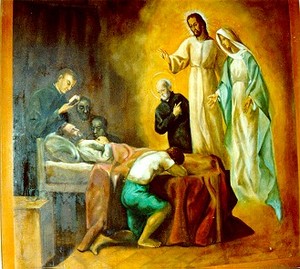 Today the Church liturgically remembers one of her missionary saints, Saint Peter Claver, (1580-1654) a Spainard who came from a very modest but known family heritage. Claver was influenced by what he heard and what he read in Jesuit houses of the missionaries. The brother porter-saint of Claver's Jesuit house of studies, Alphonsus Rodriquez, frequently spoke of the need great work he could do in sharing the Gospel in mission lands. So moved to serve the Divine Majesty in a distant land, he requested of his superiors to be sent on mission to the New World. In what is known today as Columbia, South America, Claver worked with the negro-slaves teaching them the faith, and attending to their human and spiritual needs. In Claver's eyes he took Saint Paul's teaching that there are no distinctions in the Kingdom between Jew and Greek, slave or free, man or woman: all are the adopted children of God. As one person put it, for 33 years Father Peter Claver lavished love on the slaves that transcended the natural order. It was a love that confounded his religious superiors and the leaders in civil society of his day. It is reported that the saint brought to Christ 300K souls.
Today the Church liturgically remembers one of her missionary saints, Saint Peter Claver, (1580-1654) a Spainard who came from a very modest but known family heritage. Claver was influenced by what he heard and what he read in Jesuit houses of the missionaries. The brother porter-saint of Claver's Jesuit house of studies, Alphonsus Rodriquez, frequently spoke of the need great work he could do in sharing the Gospel in mission lands. So moved to serve the Divine Majesty in a distant land, he requested of his superiors to be sent on mission to the New World. In what is known today as Columbia, South America, Claver worked with the negro-slaves teaching them the faith, and attending to their human and spiritual needs. In Claver's eyes he took Saint Paul's teaching that there are no distinctions in the Kingdom between Jew and Greek, slave or free, man or woman: all are the adopted children of God. As one person put it, for 33 years Father Peter Claver lavished love on the slaves that transcended the natural order. It was a love that confounded his religious superiors and the leaders in civil society of his day. It is reported that the saint brought to Christ 300K souls.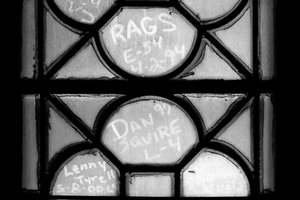 David W. Dunlap of the NY Times wrote a piece earlier today, "Firefighters' Names Endure in St. Patrick's Towers," talking about the legacy of the firefighters in the iconic St Patrick's Cathedral. The article is a nice remembrance of those who inscribed their names following the 9/11 tradegy. Thanks to Msgr. Robert Ritchie and others who are committed to keeping the graffiti intact.
David W. Dunlap of the NY Times wrote a piece earlier today, "Firefighters' Names Endure in St. Patrick's Towers," talking about the legacy of the firefighters in the iconic St Patrick's Cathedral. The article is a nice remembrance of those who inscribed their names following the 9/11 tradegy. Thanks to Msgr. Robert Ritchie and others who are committed to keeping the graffiti intact.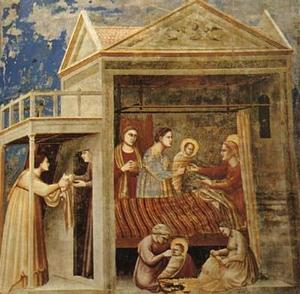
The feast of the nativity of the blessed Virgin Mary, born from the tribe of Judah, from the seed of Abraham and the race of King David, from whom the Son of God was born, made man through the Holy Spirit, that men might be freed from the ancient servitude of sin.
"...this feast of Mary's birth should remind us of God's loving plan" (Abp. Charles J. Chaput, Installation homily).
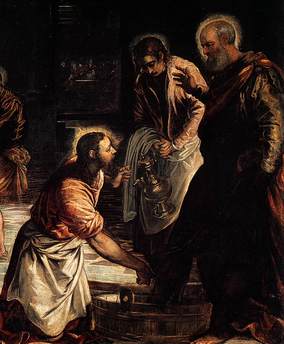 One of the themes from Oblate retreat this past weekend was humility. And from within the Gospel and Saint Benedict's vision of humility Brother John Mark spoke about love and fraternal relations, particularly rubbing elbows in true charity with your brother and sister in community. A stone is only polished when it meets other stones.
One of the themes from Oblate retreat this past weekend was humility. And from within the Gospel and Saint Benedict's vision of humility Brother John Mark spoke about love and fraternal relations, particularly rubbing elbows in true charity with your brother and sister in community. A stone is only polished when it meets other stones.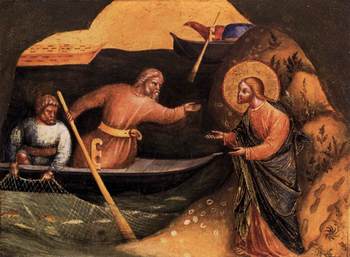 About this time of each year I look at the numbers of who professed vows, entered religious life and/or ordained of a select group of religious orders of the mixed, apostolic life and monasteries since Autumn 2010.
About this time of each year I look at the numbers of who professed vows, entered religious life and/or ordained of a select group of religious orders of the mixed, apostolic life and monasteries since Autumn 2010.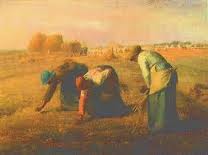
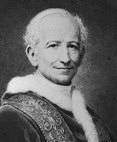 When Pope XIII published Rerum Novarum (On the Condition of Labour) in 1892, it was considered a brilliant piece of thinking on the Church walking closely with the average man and woman because it demonstrated that in reality, once again, the Church situated herself in the reality of human existence: in the social, political and economic spheres with a keen recognition of human dignity; the protection of basic economic and political rights, including the right to a just wage and to organize associations or unions to defend just claims; the right to private property; the rights of labor over capital; the just organizations of society for the common good.
When Pope XIII published Rerum Novarum (On the Condition of Labour) in 1892, it was considered a brilliant piece of thinking on the Church walking closely with the average man and woman because it demonstrated that in reality, once again, the Church situated herself in the reality of human existence: in the social, political and economic spheres with a keen recognition of human dignity; the protection of basic economic and political rights, including the right to a just wage and to organize associations or unions to defend just claims; the right to private property; the rights of labor over capital; the just organizations of society for the common good.
Pope Leo rejected not only a communistic philosophy but he did not ignore the basis of its appeal to workers and condemned the exploitative nature of the liberal-capitalist alternative. He wanted the Church on all levels to be engaged with the social order which slowly took shape in the later years of the 19th century and then in the 20th and 21st centuries.
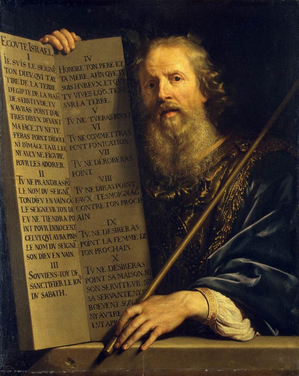 Today is the feast of Saint Moses. Indeed, the very same Moses who gave us the Ten Commandments and led the Israelites to the Promised Land. In the Mass and Divine Office we currently pray, that is the Ordinary Form, Moses is not commemorated in the sacred Liturgy. But he is remember in the liturgical anamnesis.
Today is the feast of Saint Moses. Indeed, the very same Moses who gave us the Ten Commandments and led the Israelites to the Promised Land. In the Mass and Divine Office we currently pray, that is the Ordinary Form, Moses is not commemorated in the sacred Liturgy. But he is remember in the liturgical anamnesis.Pope Benedict gave the following teaching on beauty --a subject near to his heart-- on August 31. Some of the paragraphs are here (the entire address is here). Isn't what the Pope says true???? The beautiful expressed in food, music, art, architecture, the human body, the poerty and friendship is the extroversion of the Holy Spirit.
Today, I would like to consider briefly one of these channels that can lead us to God and also be helpful in our encounter with Him: It is the way of artistic expression, part of that "via pulchritudinis" -- "way of beauty" -- which I have spoken about on many occasions, and which modern man should recover in its most profound meaning.
Perhaps it has happened to you at one time or another -- before a sculpture, a painting, a few verses of poetry or a piece of music -- to have experienced deep emotion, a sense of joy, to have perceived clearly, that is, that before you there stood not only matter -- a piece of marble or bronze, a painted canvas, an ensemble of letters or a combination of sounds -- but something far greater, something that "speaks," something capable of touching the heart, of communicating a message, of elevating the soul.
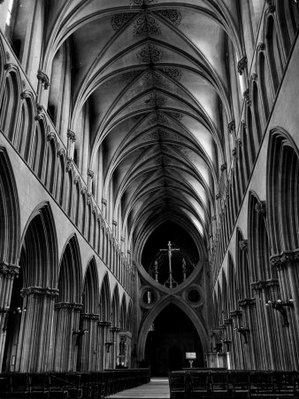 A work of art is the fruit of the creative capacity of the human person who stands in wonder before the visible reality, who seeks to discover the depths of its meaning and to communicate it through the language of forms, colors and sounds. Art is capable of expressing, and of making visible, man's need to go beyond what he sees; it reveals his thirst and his search for the infinite. Indeed, it is like a door opened to the infinite, [opened] to a beauty and a truth beyond the every day. And a work of art can open the eyes of the mind and heart, urging us upward.
A work of art is the fruit of the creative capacity of the human person who stands in wonder before the visible reality, who seeks to discover the depths of its meaning and to communicate it through the language of forms, colors and sounds. Art is capable of expressing, and of making visible, man's need to go beyond what he sees; it reveals his thirst and his search for the infinite. Indeed, it is like a door opened to the infinite, [opened] to a beauty and a truth beyond the every day. And a work of art can open the eyes of the mind and heart, urging us upward.
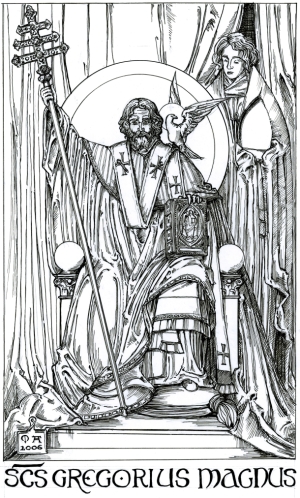 For Gregory the Great, a hinge figure between the ancient world -- the Senate of Rome last met while Gregory was the city's bishop -- a hinge between the ancient world and the grand experiment called Christendom, for Gregory this awareness that to look upon the face of Christ brought knowledge of God inspired an extensive exploration of Scripture to discern how God would have us live, how the Church and its leaders could best serve those seeking to know Christ Jesus and the Father. Since rightful authority comes from God, Gregory reasoned, its exercise must ever include a pastoral intent.
For Gregory the Great, a hinge figure between the ancient world -- the Senate of Rome last met while Gregory was the city's bishop -- a hinge between the ancient world and the grand experiment called Christendom, for Gregory this awareness that to look upon the face of Christ brought knowledge of God inspired an extensive exploration of Scripture to discern how God would have us live, how the Church and its leaders could best serve those seeking to know Christ Jesus and the Father. Since rightful authority comes from God, Gregory reasoned, its exercise must ever include a pastoral intent.
Father James Flint, OSB
Saint Procopius Abbey
3 September 2011
Let us pray for the Benedictine monks of Portsmouth Abbey, Portsmouth, Rhode Island, on this their abbey's patronal feast day. May God prosper the work of their hands!
You may also be interested in the 2010 blog post that has a hymn to Saint Gregory the Great by J. Michael Thompson.
This weekend is the 71 st annual retreat of the New York area Benedictine Oblates of the Archabbey of Saint Meinrad. The retreat is being held at Mariandale Retreat House, Ossining, NY with the retreat master being Brother John Mark Falkenheim, OSB. His theme is "Grace and Human Nature in the Rule of Saint Benedict."
Pray for the 35 Oblates.
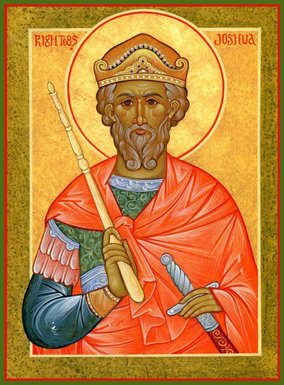 The Roman Martyrology notes Saint Joshua's feast day today. You remember him, Joshua, son of Nun, servant of the Lord, who became inspired by the Holy Spirit after Moses laid hands on him and who led the Israelites into the Promised Land. The Righteous Joshua is said to have lived for a 110 years reposing c. 1440 BC.
The Roman Martyrology notes Saint Joshua's feast day today. You remember him, Joshua, son of Nun, servant of the Lord, who became inspired by the Holy Spirit after Moses laid hands on him and who led the Israelites into the Promised Land. The Righteous Joshua is said to have lived for a 110 years reposing c. 1440 BC.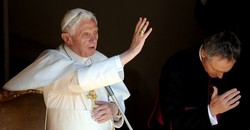 The papal prayer intentions for September bring to mind the ministry of teaching and proclaiming the Gospel in Asia. Let's join Pope Benedict and the Church in asking God to bestow His grace on these two intentions.
The papal prayer intentions for September bring to mind the ministry of teaching and proclaiming the Gospel in Asia. Let's join Pope Benedict and the Church in asking God to bestow His grace on these two intentions.